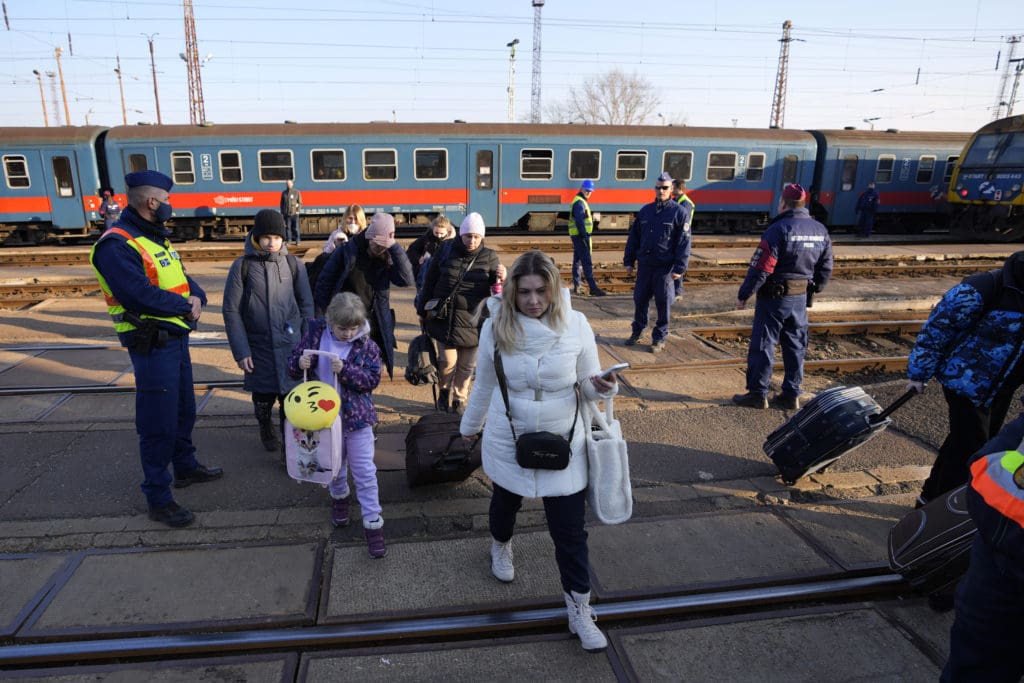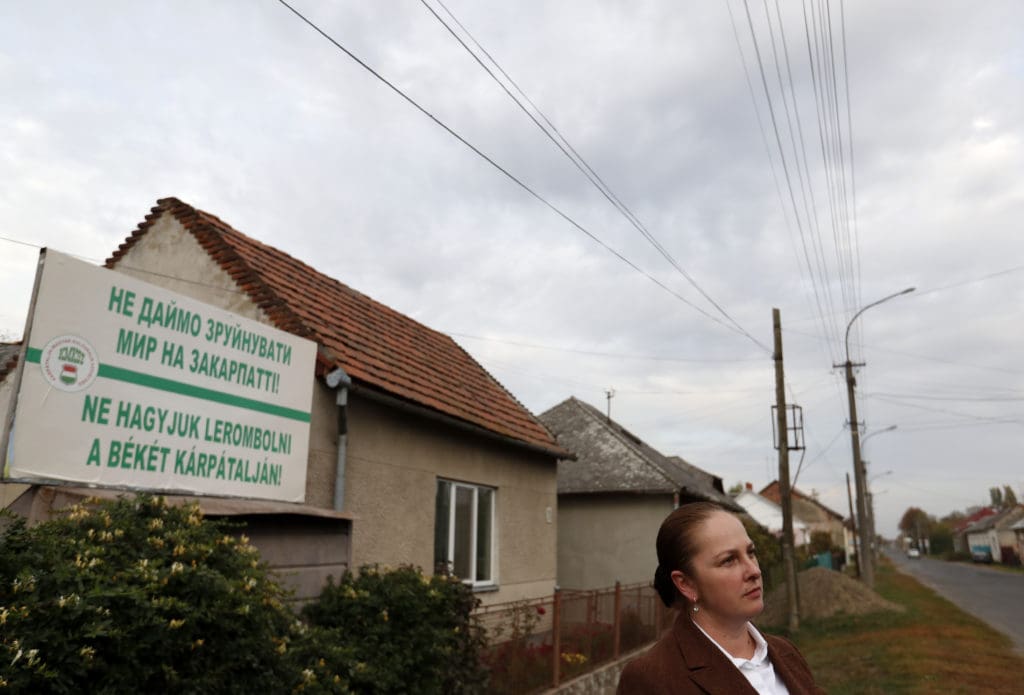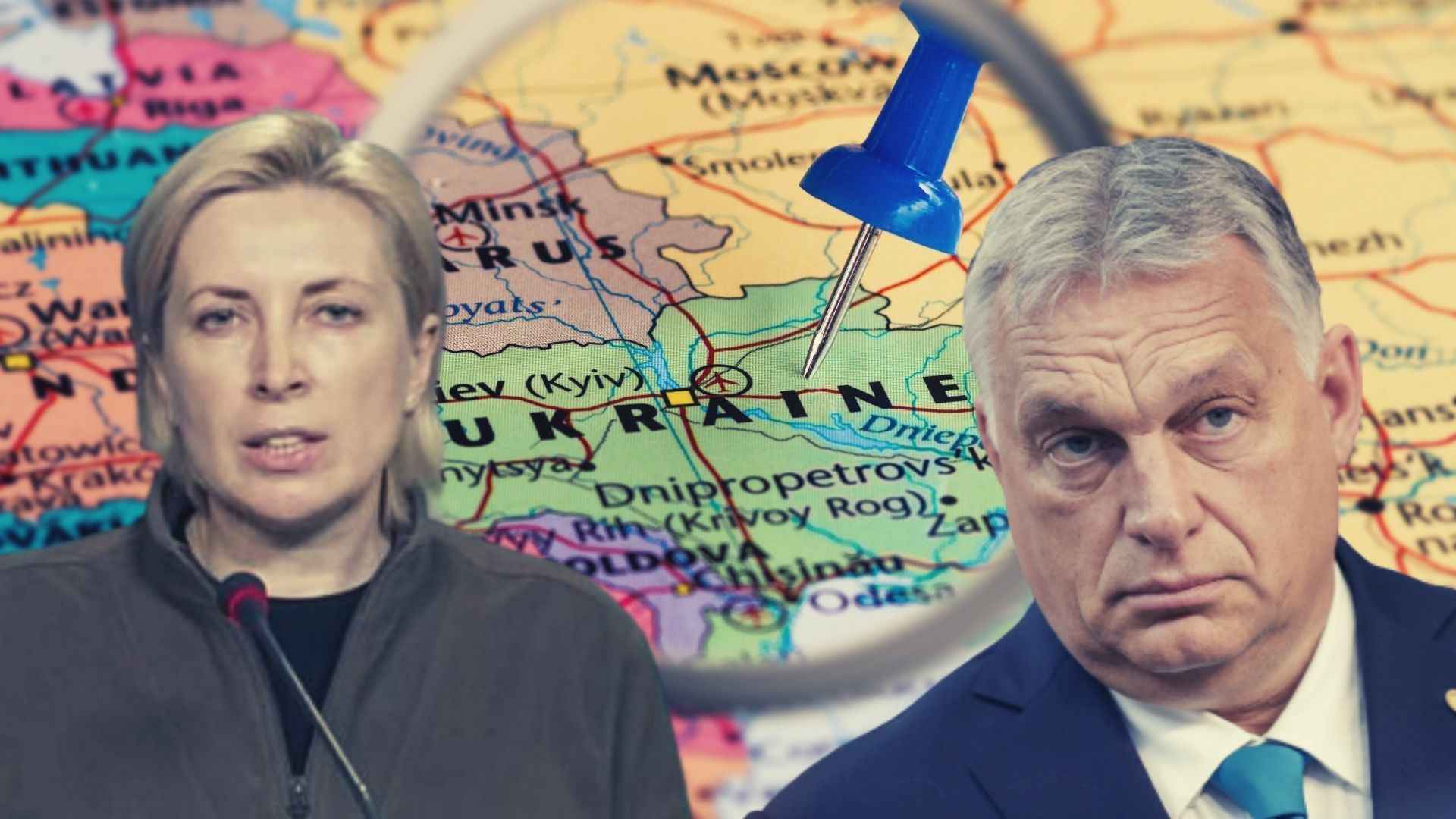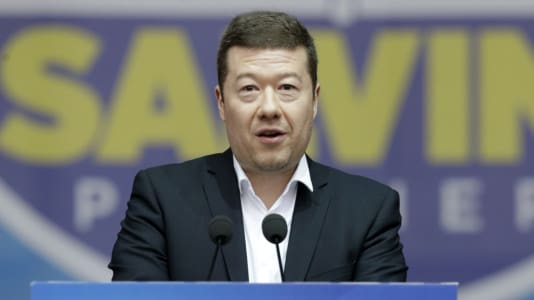Hungary’s refusal to ship weapons or allow their transit through its territory to Ukraine has raised some complaints, but the recent Facebook post of Irina Vereshchuk underlines the motivation behind Hungary’s decision. Her disparaging message is directed against the government of Viktor Orbán, who took the position of keeping Hungary out of the military conflict. The historical allusions she made to the Transcarpathian region, which was annexed by Ukraine from Hungary in 1920, show that Ukrainian politicians still live off anti-Hungarian paranoia and use it for political purposes.
Vereshchuk opens her Facebook salvo by saying that the way the Hungarian leadership is treating Ukraine is worse than even that of some of the Russian satellite states from the former Soviet Union. She goes on to say that Hungary does not support sanctions against Russia and the country refuses to provide weapons or allow the transit of weapon supplies.

“They say ‘no’ to virtually everything,” she complains. She then goes on to theorize about the reasons for this, claiming that the Hungarian government is motivated by Russian gas supplies or, as she put it, “They silently dream of our Transcarpathia?”
She continues her diatribe by saying that Hungarians are stabbing Ukraine in the back in return for some “Russian handouts,” and explicitly accuses the government in Budapest of profiteering from the war. She concludes by calling on Hungarians to “take the right side, the one of the civilized world.”
“Yes, the right choice is always hard at first, but it is easy to live by in the future,” she adds.
[pp id=30751]
First, it is of grave concern that a high-ranking representative of the Ukrainian government position — in this case the deputy prime minister — would resort to such undiplomatic and offensive language, especially aimed at one of her neighbors in the midst of an armed conflict. Yet, instead of trying to earn the goodwill of a nation supplying war-torn Ukraine with humanitarian and medical aid, all while taking in hundreds of thousands of Ukrainian refugees, she instead antagonizes it with an emotional outburst and nationalistic language.
What she actually claims also happens to be untrue for the most part. Contrary to her claims, Hungary did support the international community’s tough sanctions against Russia, and the government has condemned the invasion at the UN, the EU, and domestically. In other words, Vereshchuk is spreading false information.
It is true that the government of Viktor Orbán did not agree to arms shipments to Ukraine, but whether the Ukrainian government likes it or not, this is the sovereign decision of a nation that wants to stay out of a proxy-war between the U.S. and Russia. Orbán had decided to give priority to the national interest and safety, and one could argue that if the Ukrainian government had done the same in the past decade or so, perhaps the current crisis could have been averted.
[pp id=30522]
It is also astonishing that Vereshchuk accuses Hungarians of saying “no” to everything even after Hungary’s government said an emphatic “yes” to over half a million refugees from Ukraine. Hungary, known for its tough stance on illegal migration, instantly recognized the need to open its borders for genuine refugees, and helped them on a governmental level, while many Hungarian families have also opened their doors to these people in need.
The bizarre accusations, according to which Hungary is secretly looking for an opportunity to re-annex the Western Transcarpathian region called home by the Hungarian minority, reinforce why the Hungarian government is taking a stance against arming Ukraine. A succession of Ukrainian governments driven by the above mentality have gradually eroded the rights of the Hungarian minority in Western Ukraine, and have spread these chauvinistic sentiments among the population.
[pp id=29863]
The Zelensky government put the final nail in the coffin of Hungarian-Ukrainian relationships in 2020 by introducing a law banning Hungarians from using their language, national symbols, singing their hymns, publishing their newspapers in their language, all which amounted to restrictions that were unheard of even during the times of communist rule.

A Hungarian cultural center was burned down twice, leaders of the Transcarpathian minority were intimidated, and because of their dual citizenship, some members of the Hungarian minority were disqualified from holding public offices. It is therefore perhaps understandable why members of the Hungarian government are not joining the voices calling for Zelensky to be awarded the Nobel Peace Prize, nor are they willing to arm people who have oppressed and disenfranchised fellow Hungarians for decades.
[pp id=5872]
Consequently, it takes some gall from a member of the Ukrainian government to lecture Hungary on behaving like a civilized nation, but even more to transfer blame on a small country protecting its citizens, instead of recognizing their own responsibility in the dire situation Ukraine is in. Surely, the blame for the Ukrainian invasion should be assigned to Vladimir Putin, but the billions stolen by Ukraine’s own oligarchs, Pinchuks, the Kolomoyskys and others, would make a serious difference in fighting the Russian army.
Finally, in the light of the wisdom Irina Vereshchuk was happy to impart on the Hungarian government, that “the right choice is easy to live by in the future,” in view of the national catastrophe that had befallen her people, she should ask herself whether she and her fellow politicians have made the right choices in the past years, whether these were the ones that Ukrainians will “find easy to live by in the future.”






